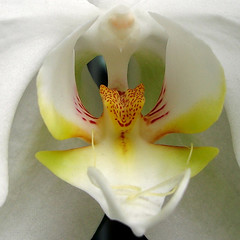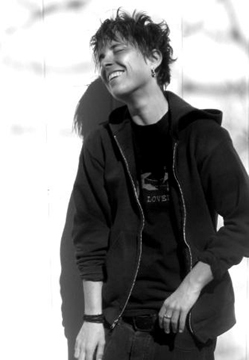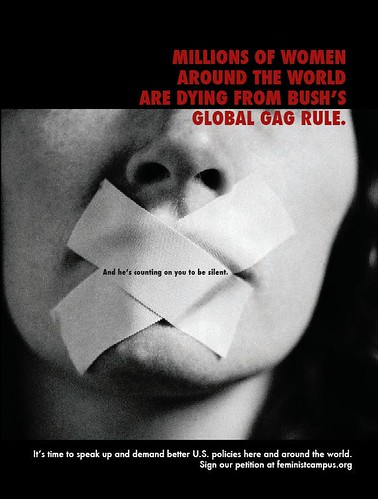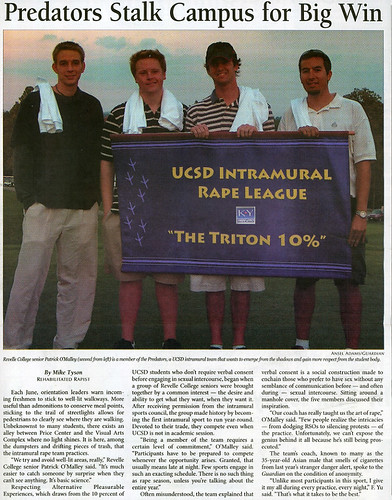to start off:
new memories are fuckin' hard.
(at one point, i would've looked at this as an obstacle to be avoided. who knew that i'd ever get to the point where i look at this as an obstacle to be surmounted, healed, learned from?)
and to expand, in a completely depersonalizing (or, well, not "depersonalizing" so much as "masking the too-revealing personal truths") way:
writing as healing.
i've had a long, long, long post in the works about this topic for over a month now.
it's still not nearly finished - in fact, it might be one of those that never gets "finished" - but here's a little bit of it. a little taste.
this one's about writing and healing, about healing through writing and writing as a conduit of healing.
(i love that word, “
conduit.” i’ve recently rediscovered it. “a means of conveying something from one location to another.” moving from (wounded) location to (healing/healed) location. appropriate, no?)
so here we go, some thoughts on writing, healing, the process, telling the truth, and so on.
the woman whose (adorable!) daughter I babysit,
Nerissa Nields, has this quote on her website:
I believe that our stories are what make us sick AND our stories are what heal us.
i'm also currently reading this absolutely incredible book by Louise DeSalvo:
Writing as a Way Of Healing.
in this book, she quotes Wayne Muller:
our own wounds can be vehicles for exploring our essential nature, revealing the deepest textures of our heart and soul, if only we will sit with them, open ourselves to the pain,...without holding back, without blame.
in this same book, DeSalvo talks about how not telling our stories makes us sick, both emotionally and physically. by extension, then, telling our stories heals us, not only emotionally, but physically as well.
over time...the work of inhibiting traumatic narratives and feelings acts as an ongoing stressor and gradually undermines the body's defenses. like other significant stressors, inhibiting our stories and emotions can adversely affect immune function..
this isn't really a new concept for me; a good friend - we'll call her T - and i have been talking for a while about how this kind of suppression / repression / woundedness is probably behind her severe anemia, my roommate's borderline narcolepsy, my own poor immune system, my mother's fifteen (and counting) physical disorders, even T's mother's death.
so.
our stories make us sick, yes. holding them in, inhibiting them, repressing them sets off an extremely unhealthy cycle: we get sick because we don't open up to our stories, we tell ourselves we can't open up to our stories because we're not well enough to deal with the ramifications we imagine would come with this kind of openness.
and we can't get well by constantly, actively repressing our stories, the traumatic events of our past. we get sicker.
that paper i tried to write at the end of my senior year at smith centered around "breaking the silence." i came to kind of hate that aphorism. it seemed overused and, after reading writer after writer using it to describe how they Healed From Abuse™, i was sick of it. i'd been talking about the abuse for years, since i was 15. i'd broken the silence, and i wasn't healed. my "healing" path, my silence-breaking, wasn't achieving that kind of healing catharsis that was supposed to come from telling my story, from "breaking the silence."
yet, despite my cynicism, my argument in the paper was still based on the revolutionary aspect of breaking the silence, particularly, the community- (and self-) imposed silences around being both queer and a victim/survivor of sexual violence. i knew i didn’t fit into the model of The Survivor – at least, the one who Healed by breaking her silence – but i still saw the potential of that model. how breaking the silence could be revolutionary, could be a (the?) path to healing…even if i hadn’t quite found that path yet, or figured out how it worked. i’ve always seen the value of breaking the silence, always repeated that aphorism, even as it frustrated and eluded me.
frustrating and elusive because i
was talking. i was writing. i was, at times, talking and writing at length about the abuse. breaking that silence. but something was missing. it wasn’t helping. i wasn’t healing.
what i didn’t realize then, what i didn’t realize until recently, is that there’s a particular kind of breaking that silence that is healing; just talking in facts, sans emotion, the way i had been for years, isn’t the kind of healing silence-breaking that i’d been seeking.
not feeling feels safe. being numb feels safe. but it’s not healing.
DeSalvo cites a study that forms the basis of her book, her program for writing as healing. the study was done by James Pennebaker and Sandra Beall, and they found that writing a full narrative -- with both facts and emotions -- of a trauma was healing in a way that writing only half (only facts, or only emotions) was not.
We must write in a way that links detailed descriptions of what happened with feelings – then and now – about what happened. Both thinking and feeling are involved. Linking them is critical. Feelings about the traumatic event in the past and the present are expressed and, perhaps, compared so that the writer unravels how the past impinges on the present but how, too, it’s different.
so that’s what was missing.
when amy, my last therapist, first asked me what i felt during the abuse, i was lost. i didn’t have anything to say.
“i’ve never really thought about that. nobody’s ever asked me before.”
she was floored that, in my years and years of therapy, nobody had asked me about what it felt like to that little girl who was being abused. it didn’t seem all that strange to me; people wanted to know
what happened, they wanted to know what my parents
did, what john
did, what i
did. why would they care about what any of us
felt? the feelings seemed irrelevant….because nobody had ever let me believe that they were relevant or told me that the “safety” i felt by avoiding them was actually a totally false sense of security. i’d become really good at telling the facts of what happened, with little or no feeling. feeling anything about it was dangerous, opened up things that i didn’t think i could bear opening up. so i didn’t.
and, until about three months ago, i kept up that stoic façade. and then i met T, a woman who, for the first time, offered the kind of safety that i’d always sought, but never found. when i told her my story, it was different. the story itself was the same, the facts didn’t change, and i still consciously left out those parts that felt (still feel) too shameful to share, but what i opened up in the telling of the story was profoundly different. when she asked me to tell her my story, and i obliged, i felt it. for the first time, when i told the facts that, over the years, have become a little mundane, i felt them in my heart and in my gut. i told a full narrative – a short version, but full nonetheless – of the story. i opened up, with her, a package with both facts and feelings.
“ah.” i thought, “
that’s what it’s supposed to be like to break the silence. this is the kind of healing that people have been talking about.”
it’s all part of living fully, of living with your heart and your head. it’s bigger than a healing way of writing, it’s bigger than me telling my story in a full way, it’s bigger than my friendship with this woman who first showed me what heart-living was about.
writing in a way that heals is just a part of living in a way that heals. but i’m a writer, always have been. so, for me, writing in a way that heals is a big part of living in a way that heals. writing in a way that links my heart-understanding of what happened with my head-understanding of what happened…that’s what it means to “break the silence.” that’s what it means to live that old, possibly overused, easily misunderstood aphorism.
so, in that vein, let me tell you a story.
...............
...and this is where the post i've been working on veers off, unfinished, into convoluted storytelling, unorganized narrative, and totally non-healing writing. so instead, i'm going to end it in a different way. read on.
i could tell lots of stories. i've considered, thoroughly, my options for which story/stories to write in this way that's supposed to heal, which stories i could share on this blog.
there are plenty of easy ones. plenty. but they're "easy" because they're things i've already done a good deal of healing around/over/in. the ones i need to tell are the ones that...are hard.
like this new memory.
the one that i tried to tell my therapist about today...and couldn't get through all of it.
it's the things that are the hardest that i most want to do. i've never liked settling for the easier tasks. i thrive on challenges, on things that are supposed to be impossible or implausible.
so i can't tell you these "easy" stories.
because the stories i want to tell aren't easy.
and i can't tell you the hard stories, either. (because i can't tell myself these stories yet, either.)
but there will be stories. they'll come.
i promise (myself. and you).




